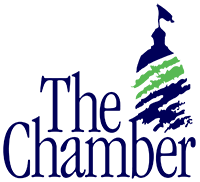Events Upcoming
New Members

Is underperformance and lack of production a sign of an ill-fit team or a symptom of mismanagement? According to a study published in Harvard Business Review in conjunction with Deloitte’s Business Chemistry system, leaders who aren’t getting their desired outcomes may have all the pieces in place needed to push the needle further—they just need to dig deeper to address the problem. Companies must acknowledge, understand, and manage the different types of employees on their teams to fully actualize each worker’s potential.
According to the author of the study, Suzanne M. Johnson Vickberg, PHD, there are four types of workers, and while we may have some traits of all of the types, we usually fall into one of the four character types:
- Pioneers
- Drivers
- Integrators
- Guardians
Understanding the differences between each type, learning their strengths and setbacks, and managing each according to their characteristics will help leaders create a strong company culture, encourage healthy productivity, and retain top performers in their organizations.
Pioneers
The study characterizes Pioneers as those who “value possibilities, and they spark energy and imagination on their teams. They believe risks are worth taking and that it’s fine to go with your gut. Their focus is big-picture. They’re drawn to bold new ideas and creative approaches.”
Characteristic traits:
- Outgoing
- Focused on the big picture
- Spontaneous
- Drawn to Risk
- Adaptable
- Imaginative
These types of go-getters tend to be the most outspoken about the next best thing. They have an enthusiastic affinity to brainstorming and following new ideas. While they are adaptable, they tend to find rules and structure off-putting. Allow this employee to drive ideas and innovation, but be careful they don’t overpower more introverted employees. Connect them with their opposite types, Guardians or Integrators, so they can learn to work with one another and balance out each other’s traits. Over time they may find common ground.
Driver
Drivers are individuals who “value challenge and generate momentum. Getting results and winning count most. Drivers tend to view issues as black-and-white and tackle problems head on, armed with logic and data.”
Characteristic traits:
- Quantitative
- Logical
- Focused
- Competitive
- Experimental
- Deeply curious
Driven by action and problem solving, Drivers are focused on winning and being direct with others. However, they tend to struggle with other employees’ indecision and lack of focus. Drivers tend to get frustrated with small talk and any distractions that keep them from getting things done. Their opposites are Integrators and Guardians. Because Drivers and Pioneers can be more dominating personalities, be careful others’ ideas aren’t held back in discussions and brainstorming.
Integrator
Integrators value relationships and have a strong sense of connection and are able to bring people together. “Integrators tend to believe that most things are relative. They’re diplomatic and focused on gaining consensus.”
Characteristic traits:
- Diplomatic
- Empathetic
- Traditional
- Relationship-oriented
- Intrinsically motivated
- Nonconfrontational
Integrators enjoy collaboration among employees and tend to focus on communication to show trust and respect between co-workers. They are frustrated by rigidity and conflict.
According to the study, Guardians tend to be the most stressed in the work place, closely followed by Integrators. When leading these two types of individuals, create a safe environment that is conducive to lowering anxiety levels. Monitor when employees seem overworked, underutilized, or overwhelmed, and change the work flow accordingly. Managers will get the best out of Integrators and Guardians if they are able to work at a comfortable pace and energy.
Guardian
Guardians are reserved workers who “value stability and bring order and rigor. They’re pragmatic, and they hesitate to embrace risk. Data and facts are baseline requirements for them, and details matter. Guardians think it makes sense to learn from the past.”
Characteristic traits:
- Methodical
- Reserved
- Detail-oriented
- Practical
- Structured
- Loyal
Guardians tend to be consistent, predictable employees who focus on organization and detailed planning. Disorder, ambiguity, and time pressure are their main pain points. To ensure the Guardian can do their best work, give them plenty of time to develop plans and create practical applications that will help Pioneers with their innovative vision. When both are working together in harmony, you can ensure a successful outcome to new practices.
Managing the 4 Types of Workers
While there is no turnkey approach to mitigating conflict and extracting the highest potential out of employees, understanding their needs, work style, and preferred type of communication style is the first step in removing relational issues that may hold you back. And while the study showed that most C-suite executives and leaders are Pioneers and Drivers, it’s important to note that effective leadership involves changing your style to manage each person according to theirs or to the situation at hand. Organizations that unlock the full potential of all four types of workers have all the elements needed to take their industry by storm—they just need the right key.
This article provided by Express Employment Professionals.
